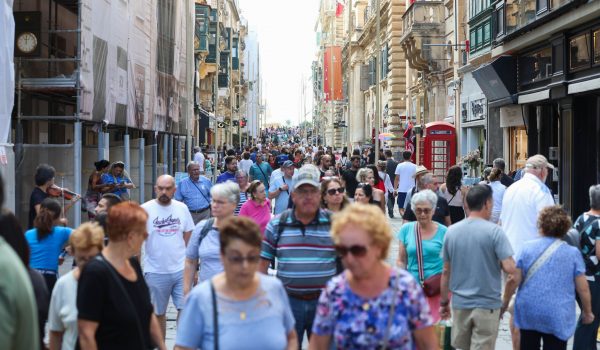
Malta’s Covid-19 reproduction number has decreased to below 1 in the past week, now standing at 0.85, statistician Vincent Marmara told The Malta Independent on Sunday in his exclusive weekly video blog on the Covid-19 situation in Malta.
The reproduction factor of the virus is one of the key figures which countries across the world have been trying to reduce ever since the Covid-19 pandemic began. The aim for countries has been to reduce the ratio to a level of 1 – which would mean that one person would transmit the virus to one other person.
The reproduction number is based on a variety of factors, such as the source of new cases – for instance, whether they are imported or whether they are part of particular clusters – and the amount of testing being carried out.
Marmara’s analysis shows that there were 210 cases found in the past week; a decrease compared to the 295 and 387 cases found in the last two weeks respectively.
The number of positive cases when compared to the number of tests has also decreased again, with 1.3% of the tests done last week giving back positive results. This is down from 1.8%, 2.6%, and 2.1% in the last three weeks respectively.
Marmara noted how there has been an up and down pattern in the virus’ cycles in Malta in recent weeks, all of which has resulted in Malta’s r-factor now standing at 0.85.
Looking further afield, Marmara noted how there have been increases in the number of Covid-19 cases across most of Europe’s major countries.
The United Kingdom has seen significant increases across the country, to the point that their r-factor is now over 1.5, while there have been small increases in Italy and Germany as well.
The number of cases in Spain and France have decreased slightly, but remain high – especially in France when comparing to the first wave of the virus.
Cases in the United States have remained high, as they have for the whole of the pandemic, and continue to increase in a week where the country’s President Donald Trump tested positive for the virus.
Marmara noted that Covid-19 has different characteristics when compared to seasonal influenza. He explained that while influenza is normally made up of one singular wave of cases, Covid-19 has been made up of a number of cycles and waves over the course of a number of months, showing that it is not dependent on any particular season.
Marmara concluded by reiterating his appeal for the public to continue to follow the guidelines issued by health authorities in order to restrict the spread of the virus as much as possible.
Source: Malta Independent



